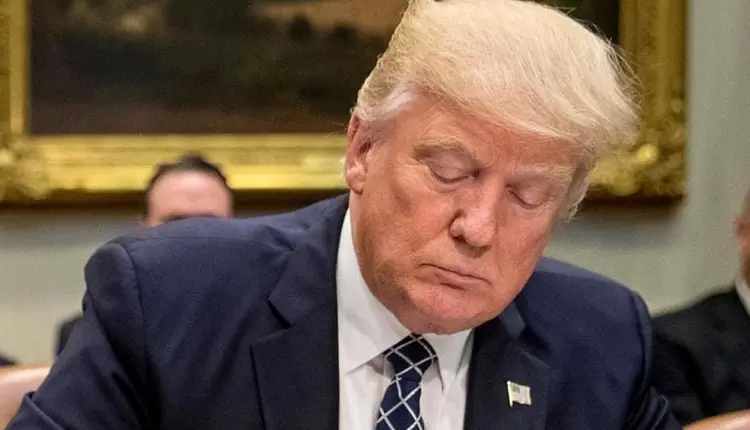Washington D.C: As President Donald Trump started his new term, he gave several special orders. One big order tries to change the law that gives U.S. citizenship automatically to children born in the U.S. to parents from other countries. American citizens and immigrants fear President Trump’s “Protecting the Meaning and Value of American Citizenship” rules that mainly affect Indian nationals living in the US.
The order mandates that newborn children in the U.S. don’t automatically get citizenship, based on certain conditions fulfilled. Specifically, these circumstances include:
If the mother did not follow U.S. immigration rules when giving birth to a child here.
Children born in the US will lose automatic citizenship rights if their fathers lack US citizenship or permanent residence when they are born.
The maternity visa holder loses as a result of this rule if she gives birth while on a temporary visa.
If their father isn’t a U.S. citizen or has permanent residency when their child is born.
Starting February 20, 2024, new rules come into force and will apply to every child born from that date forward.
Trump backed those with H-1B visas in his latest meeting with the press, saying, “This nation benefits from having skilled newcomers.” We get talented workers through the H-1B visa program.” His defence of H-1B visa recipients contrasts with his goal to deny citizenship rights to children born to non-citizens.
According to the 14th Amendment of the US Constitution, birthright citizenship protects all children born in the nation, including those with immigrant parents. Opponents say this birthright citizenship rule motivates illegal entry into the U.S. by pregnant women who want American-born babies.
Experts understand Trump needs more than an executive order to end automatic citizenship at birth in the US. University of Virginia Law School professor Prakash explains Trump’s actions will draw public reaction, but final authority belongs to the judiciary. He can’t make this decision on his own. To alter the law, he mentioned that it would need amending the Constitution, which requires a two-thirds congressional vote in both houses plus state backing.
Trump’s order poses a risk to more than just current citizens. Children holding visas in the U.S. could lose their citizenship status if new immigration rules take effect. Green card and H-1B visa holders will no longer be sure about their children’s automatic citizenship status.
The U.S. Census Bureau says there are 5.4 million Indians living in America, which makes up 1.47% of everyone in the country. About two-thirds came directly from India as first-time immigrants, and the remaining third were born in the United States.
The latest numbers demonstrate that India received 72% of the visa allocations, while China received 12%, and the remaining visas went to people from the Philippines, Canada, and South Korea.
Shamsher Singh Sandhu, Managing Director of Canadian Immigration Law, commented on the situation: Trump probably made this order to fit into his larger plan, but it probably won’t hurt Indians living in the U.S. much. He said that babies get citizenship, not their parents. Most people go to America because they want to work or study, not just have children.



Comments are closed.